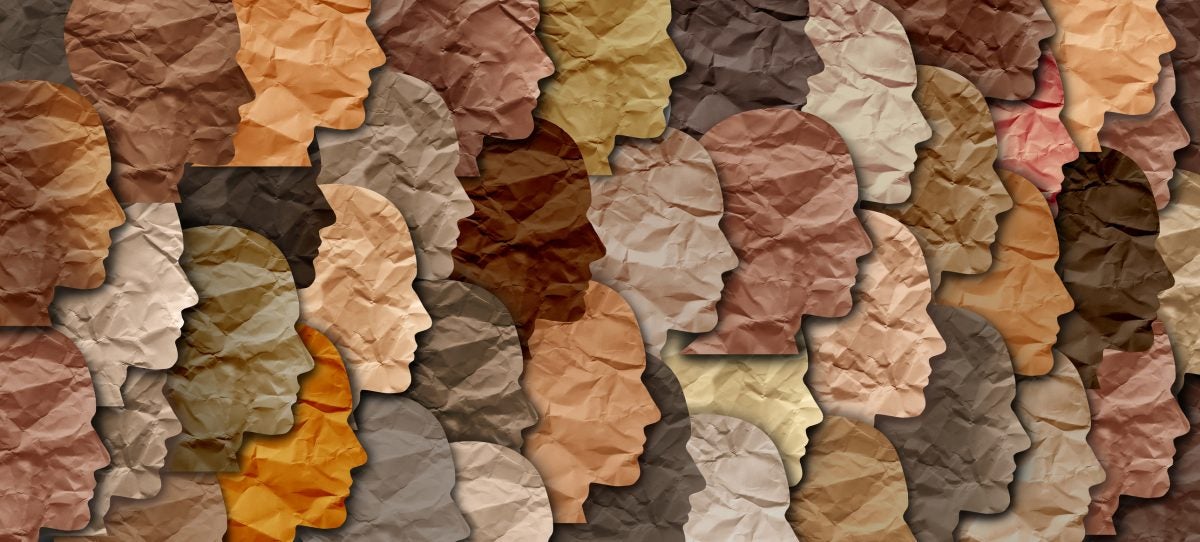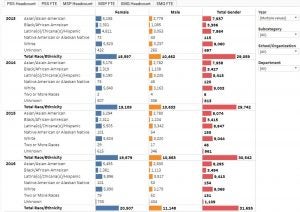Dear UCLA Community:
Justice is a process, not an event. Yesterday, we learned of the verdict holding Derek Chauvin accountable for the murder of George Floyd. We paused to listen to George Floyd’s family reflect on their loss and pain and what it has meant to the world. We paused to reflect on how much further we need to go for Black lives to matter to all. Last night, I paused to hug my loved ones a little tighter and appreciate them a little more as we learned of more loss and tragedy.
As Chancellor Block indicated in his message to campus yesterday, UCLA has work to do. Amid the pain and heaviness, let us find strength in solidarity. It is in community that we find the resilience to continue to fight against racism, violence and hatred. It is through community that we build on our common desire for dignity and justice. In keeping with this principle, the Office of Equity Diversity and Inclusion asked members of our community to reflect on the meaning of this moment and we invite you to listen to what your fellow students and colleagues had to say.
Two members of the Office of Equity, Diversity and Inclusion’s Student Advisory Board offer their insights. Vivica Rush, UCLA Class of 2021, says “[m]any Black Americans were waiting for the outcome of the Chauvin trial with bated breath. We wondered whether this country would affirm our lives, or revel in our deaths, as has been done for centuries. Regardless, we know the state of our humanity is not a decision to be made by twelve jurors. It is now, and has always been, our own.” Kaumron Eidgahy, also UCLA Class of 2021, reflects that “while the guilty verdict is the bare minimum for not only George Floyd’s family, but also to the many Black Americans, and Black Bruins, for whom this trial feels intensely personal, it will hopefully continue to pave the path towards true justice through abolition. It is the hope of many of us that the UCLA administration and faculty support students at this time, particularly our Black Bruins, understanding that students are people before academics and that trying to heal from moments of heightened racial trauma is a difficult process.”
Jessica Alexander, President of UCLA Staff Assembly, shares “[t]he added stress of awaiting an outcome of an historic murder trial and having to process additional recent incidents of violence committed by police against young people of color is undoubtedly tough on our staff, particularly staff of color. I hope that our colleagues will reach out for support through our Staff and Faculty Counseling Center and know that Staff Assembly stands in solidarity in denouncing racism and police brutality against communities of color.”
Professor Charles Alexander, Associate Vice Provost for Student Diversity at the UCLA School of Dentistry, says “the escalation of police brutality is creating a need to re-evaluate and reform how policing is done in American. Too many people, especially Black and Brown people, are becoming victims of police actions that are unnecessary, over the top, or plain out too aggressive. We need a national commission that consists of citizens, government officials, and victims to focus on this issue that will bring about systemic and humanistic changes.”
Paul Barber, Professor of Ecology and Evolutionary Biology, advises that “the challenges in our society that have led us to this point will not resolve with a single verdict. The policing practices and policies that have led to the deaths of George Floyd, Daunte Wright, Breonna Taylor and a long list of others are symptoms, not just of biases within police forces across the U.S., but also biases within our society at large. As we push for accountability and reform within our policing institutions, we must also look within ourselves and our communities to address the biases and inequities that lead to Black and Brown people being viewed not as fellow humans, but as threats.”
Cheryl Harris, Professor of Law and Rosalinde and Arthur Gilbert Foundation Chair in Civil Rights and Civil Liberties shares that “[t]his trial decided to convict one individual, a policeman, for killing a Black man, but the verdict on the criminal legal system and policing was already in. Both are thoroughly saturated in systemic racism and must be completely transformed.”
Onyebuchi A. Arah, Professor of Epidemiology, UCLA Fielding School of Public Health reflects “[p]olicing, racism and violence should never go together in one sentence, and certainly not in our lives and communities. We owe it to George Floyd and countless other victims to remove racism and violence from policing and our communities. This should not be controversial. Too many lives, families and communities have been forever destroyed by the fatal intersection of policing, racism and violence. Our shared humanity demands a consequential, compassionate and peaceful structural solution with long-term commitment from all of us. Our families need it. Our democracy requires it.”
Finally, Tyrone C. Howard, Professor and Pritzker Family Endowed Chair in Education to Strengthen Children & Families advises that “this verdict is a step in the right direction. Though it does not take away the pain and loss of George Floyd’s family, it brings some sense of justice. This also tells us that peaceful protests, resistance, and using our voices can make a difference in the fight for justice. Though there are many more battles to fight, today’s was a victory for the Floyd family and for all those who believe in justice, eradicating racism, and equal protection under the law.”
How does a university acknowledge these harms and work to advance change? First, let us take space to heal. UCLA’s Counseling and Psychological Services (CAPS) offers support for students, and the Staff and Faculty Counseling Center provides counseling for employees. You can find additional Resources for Racial Trauma and Guidance on Police Equity on the EDI website. Next week, CAPS, Resilience in your Student Experience (RISE) Center, and the Office of Equity, Diversity and Inclusion will sponsor three support spaces, two for students and one for staff and faculty, for community reflection. May we gather together, engaging the deep expertise and experience at UCLA, to advance from ideas into action.
Sincerely,
Anna Spain Bradley
Vice Chancellor for Equity, Diversity & Inclusion






